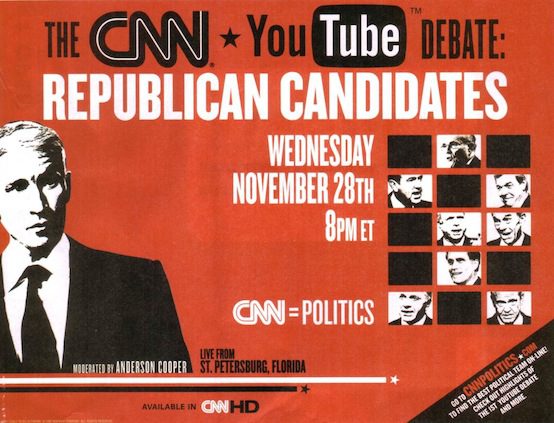The Virtue of a Prolonged Nomination Battle

Jonathan Bernstein notices that Republicans are starting to get anxious that their 2016 presidential field will be too crowded. He tells them not to worry:
In any case, the nomination will be locked down by June 2016, at the very latest. Could it be a rough journey? Absolutely. Will that matter in November? Almost certainly not. The closest, longest presidential nomination battle since 1976 was the Democratic contest in 2008 between Barack Obama and Hillary Clinton. It had no apparent ill effects.
Republicans have a strange habit of overreacting to whichever flaw in the nominating process they noticed the last time around. In 2008, many Republicans were dissatisfied with how quickly McCain wrapped up the nomination, and so they set out to change the rules to make the process take longer. Then in 2012, they found that the nomination process was taking longer, and that meant that the eventual nominee had to fend off more challengers for a longer period of time. To fix this new problem (which was the solution to the earlier problem), they made a point of changing the things that they imagined did the most damage to the party, which is why there will be fewer debates and a shorter primary schedule with an early convention date. If the GOP wins the 2016 election, they might keep that system for at least another cycle, but if they lose we can expect them to go back to something more like the 2012 arrangement.
I mention all of this by way of affirming Bernstein’s point that none of this seems to have any effect on the general election result one way or the other. There was no prolonged battle for the Republican nomination in 2008, but a prolonged battle or the lack of it wouldn’t have availed the Republican nominee anything in a year when most Americans detested President Bush and the party he led. By the same token, Romney could have wrapped up the 2012 nomination within a few weeks and he likely still would have received around 47% of the vote and lost.
Truly bitter intra-party battles matter for the general election when they alert us to serious divisions in a sitting president’s party, and those divisions reflect broader dissatisfaction with the incumbent’s tenure. In those cases, a serious primary challenge is a symptom of the incumbent’s deeper problem with the electorate as a whole. The challenge doesn’t help the incumbent, of course, except that it tells him that he is in much bigger trouble than he thought. By contrast, in an open nomination contest for the party that has been out of power for eight years, a prolonged nomination battle can be energizing and valuable. Despite a lot of what was said and written at the time, the 2008 contest on the Democratic side was generally very beneficial to their party. What matters is that the party in question has a large number of high quality candidates with which it can start the winnowing process. That is where the GOP may have more concerns.
It has often been taken for granted that the 2012 Republican field was exceptionally weak and the 2016 field will be much stronger, but it has never been clear that the likely 2016 candidates will be that impressive as a group once they are actually declared and running their campaigns. The more that they are scrutinized and their competence as candidates (or lack thereof) becomes better-known, the more that we’ll start to hear how overrated this field was all along. People are able to claim the higher quality of the 2016 field for the same reasons that many people assumed that the fantasy candidates of 2012 would have been much better than the ones that declared: it easy to claim that the non-candidates would be more appealing/competent/interesting because no one is thinking about their weaknesses yet, and there is no way to prove the assertion wrong until they declare. Once the 2016 field starts to take shape, we can expect another round of the same complaints about the “strong” candidates that stayed on the sidelines.
There is uncertainty about the size and composition of the 2016 field in part because it is still before the midterms, so many of the questions about who will become a declared candidate and who won’t will be answered soon after the election or in the first few months of 2015. Unlike last time, there will be no great incentive for potential candidates to wait as long as possible before joining the fray. In the absence of any clear front-runner, no one stands to benefit from being coy about his intentions for very long. Because so many of the possible candidates come from the same states, there will also be a natural winnowing process that takes place even before most candidates announce. As comical as it might be, we aren’t going to get to watch Cruz and Perry or Portman and Kasich going after each other. Some of these people are going to find sufficient backing, and that means that the others are going to bow out. There will be a fairly large field of declared candidates by this time next year, but it isn’t going to include a lot of the people mentioned in this article.
Comments